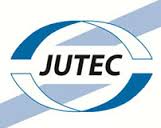В мире электромонтажных работ безопасность имеет первостепенное значение. При работе с электроустановками под напряжением или в непосредственной близости от токоведущих частей риск поражения электрическим током является постоянной проблемой. Чтобы уменьшить эту опасность, европейский стандарт EN 50365 играет решающую роль, определяя требования к электроизолирующим каскам. Эти каски предназначены для защиты работников, предотвращая прохождение электрического тока через тело человека через голову. В этой статье мы рассмотрим важность и значение EN 50365.
1. Защита от поражения электрическим током
EN 50365 - это европейский стандарт, посвященный электроизолирующим каскам, которые используются в ситуациях, когда необходимо работать с электроустановками под напряжением или вблизи токоведущих частей. Эти каски не являются обычными головными уборами; они специально разработаны для защиты работников от поражения электрическим током - потенциально смертельной опасности, связанной с работой с электричеством.
2. Ключевое назначение
Основная цель EN 50365 Соответствующие электроизолирующие шлемы служат для создания барьера между головой пользователя и электрическими частями под напряжением. Эти каски являются диэлектриками, то есть не проводят электричество. При правильном использовании в сочетании с другими изолирующими средствами, такими как перчатки и обувь, они эффективно предотвращают прохождение электрического тока через тело через голову, обеспечивая безопасность пользователя.
3. Требования к дизайну и тестирование
EN 50365 определяет строгие требования к конструкции, которым должны отвечать электроизоляционные каски, чтобы соответствовать требованиям. Эти требования гарантируют, что каски обеспечивают достаточную электроизоляцию и при этом удобны и практичны для ношения во время электромонтажных работ. Для подтверждения соответствия каски должны пройти строгие испытания, включая оценку диэлектрической прочности и изоляционных свойств.
4. Безопасность на рабочем месте
Электрики, работники коммунальных служб и другие специалисты в области электротехники полагаются на EN 50365 каски, соответствующие требованиям, чтобы защитить себя от потенциально смертельных электрических опасностей. Работодателей часто обязывают предоставлять и обеспечивать использование этих специализированных касок, чтобы обезопасить своих работников и обеспечить безопасность на рабочем месте.
5. Дополнительная защита
EN 50365 Каски обычно используются в сочетании с другими средствами индивидуальной защиты (СИЗ), такими как изолирующие перчатки и обувь. Такой комплексный подход к обеспечению безопасности гарантирует, что работники электроустановок имеют многоуровневую защиту от поражения электрическим током.
6. Совместимость и европейское регулирование
EN 50365 соответствует европейским стандартам и нормам безопасности на рабочем месте, способствуя созданию единой системы безопасности в европейских отраслях. Эта совместимость позволяет интегрировать электроизолирующие каски в более широкие протоколы безопасности и требования к СИЗ.
В итоге, EN 50365 это важный европейский стандарт, который удовлетворяет важнейшую потребность в обеспечении безопасности при работе с электричеством. Определяя требования к электроизолирующим каскам, он помогает защитить жизни работников, которые постоянно сталкиваются с риском поражения электрическим током. Соответствие EN 50365 является необходимым для обеспечения безопасности и благополучия людей, работающих с электроустановками под напряжением, и подчеркивает важность комплексных мер безопасности в электротехнических профессиях.
 3M
3M Ansell
Ansell Дельта Плюс
Дельта Плюс Drager
Drager Эдельрид
Эдельрид Honeywell
Honeywell JUTEC
JUTEC Лейкленд
Лейкленд MSA
MSA Новая свинья
Новая свинья Weldas
Weldas